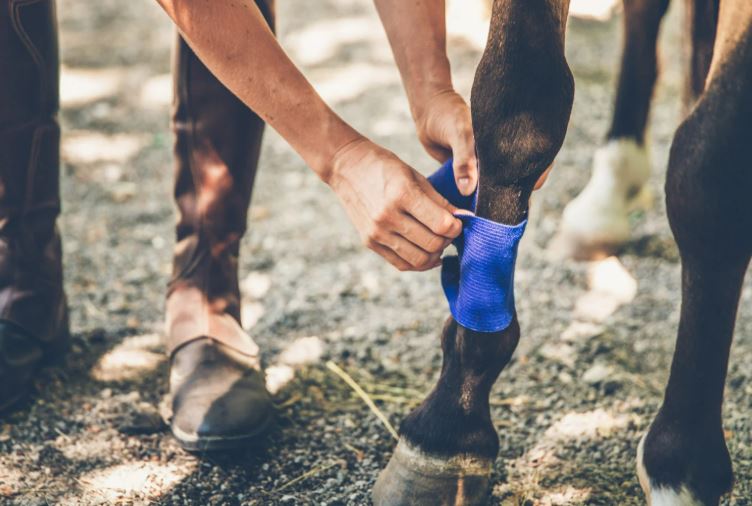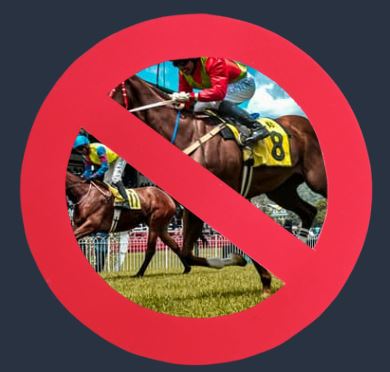Will Horse Racing Ever Be Banned?
Horse racing has been part of British culture for centuries. From grand events to local meets, it brings together sport, betting, and tradition. But public opinion is changing. More people are asking whether it’s still right for horses to race in competitive environments, especially when money is involved.
You might be curious about how safe it really is for the animals, or whether the industry is doing enough to protect them. This blog looks at both sides of the debate – the ethical concerns and the arguments for keeping the sport going. It also considers how likely a ban is in the future and what that could mean.
Why Is Horse Racing Not Banned?
Horse racing is not banned in the UK because of its long-standing role in the economy, culture, and sport. The sport supports a large number of jobs. These include roles such as jockeys, trainers, breeders, veterinarians, farriers (who trim and shoe horses’ hooves), and stable staff. Beyond the stables and racecourses, it also helps to sustain jobs in media, catering, tourism, and event management.
A major part of racing’s income comes from betting. This is where people place money on the potential outcomes of races through licensed bookmakers. Bookmakers offer odds – a way of showing how likely something is to happen and how much it could pay out if it does. For example, a horse priced at 4/1 (said “four to one”) would return £4 profit for every £1 bet if it wins. The betting industry as a whole, generates billions of pounds each year in the UK.
A portion of this money is used to fund horse racing itself through the Horserace Betting Levy. This is a statutory charge that ensures betting contributes to racing. Without this, many racecourses would struggle financially. This financial connection between betting and racing is one reason why the sport still has strong backing.
Horse racing in Britain is regulated by the British Horseracing Authority (BHA). This governing body sets rules for racing, licensing, and welfare. The BHA also works with organisations that focus on protecting horses before, during, and after their racing careers. Strict regulations cover race types, track safety, veterinary inspections, and more. These rules are designed to try and reduce risk and ensure that horses are fit to race.
Events like the Grand National and Royal Ascot draw large crowds, media coverage, and international attention. These occasions are seen not just as sporting events, but also as social fixtures, and they contribute significantly to the tourism and hospitality sectors. This cultural importance is another reason the sport continues.
Is Horse Racing Cruel?

Whether horse racing is cruel depends on your perspective. It’s a subject that divides opinion and involves complex ethical questions.
Those who believe it is harmful often point to injuries sustained during races or in training. Common injuries include tendon strains, fractures, or internal bleeding, which can sometimes result in horses being euthanised. Whip use is another concern. Although rules now limit how and when whips can be used, critics argue that any physical force to make a horse run faster raises welfare issues.
There’s also concern around the pressure placed on young horses to race before they are physically mature. Most racehorses begin their careers at around two years old, when their bones are still developing. This can raise the risk of long-term injury or early retirement.
On the other hand, supporters say that horses bred for racing are active animals that thrive in structured routines. Racehorses receive regular veterinary care, specialist diets, and access to physiotherapy. Some even have access to swimming pools, solariums, and highly trained staff. This level of attention is not always matched in other equestrian disciplines or even in general horse ownership.
The BHA continues to adjust its welfare policies. This includes changes to how whips are used, stricter checks before races, and collecting data to better understand injury risks. Retirement and retraining programmes also aim to give former racehorses new careers in other riding activities, such as show jumping or dressage.
Public awareness is influencing change. Campaigns and documentaries have brought attention to poor practices, but they have also led to improvements in regulation. However, concerns remain, and welfare is now one of the biggest factors shaping the future of the sport.
Will Horse Racing Be Banned In The Future?
It’s difficult to say whether horse racing will be banned in the UK, but a full ban seems unlikely in the near future. This is mainly due to the size of the industry and the steps being taken to improve welfare.
However, public opinion continues to shift. A growing number of people are questioning the use of animals in sports. If this trend continues, it could lead to political pressure for further restrictions or tighter rules. The recent changes to whip regulations and race monitoring show that authorities are responding to public concern. These changes may reduce calls for an outright ban, at least for now.
The decision to ban a sport involves more than public opinion. Policymakers would also have to consider the possible economic consequences, the thousands of jobs at stake, and the knock-on effects on other industries. They would also need to assess the impact on the horses themselves. If racing were to stop suddenly, it could leave thousands of horses without a clear future.
In the meantime, some campaigns are focusing on gradual reform instead of an immediate ban. These efforts aim to improve transparency, tighten rules, and hold those in the sport to higher welfare standards. As these standards rise, so does the pressure to meet them, or risk further scrutiny.
The long-term future of horse racing may depend on its ability to adapt to changing values. For now, it remains legal and heavily regulated, but the conversation continues.

What Would Happen If Horse Racing Was Banned?

If horse racing were banned in the UK, it would bring significant disruption. The most immediate effect would be the loss of jobs across several industries. This includes not only those directly involved with racing, but also support sectors such as transport, event planning, catering, and media.
Betting would also be affected. Horse racing is one of the main sports that people in the UK bet on. Without it, many sportsbooks would lose a large portion of their market.
A ban could also cause concern for the future care of thousands of racehorses. While some may be retrained for other equestrian sports, this requires time, effort, and funding. Not all horses are suitable for different disciplines, and rehoming large numbers of animals could place pressure on welfare charities and facilities.
There would also be an impact on tax revenues. The UK government receives funds from betting taxes and the Horserace Betting Levy, which helps support racing and welfare projects. A ban could reduce this income, affecting funding streams that benefit from it.
Finally, removing horse racing would leave a gap in British sporting culture. Horse Racing events like the Cheltenham Festival and Royal Ascot are televised, attended by thousands, and viewed as social traditions. Without them, the national calendar would change, and many businesses tied to these events could lose trade.
Bet on Horse Racing Online at Bet442
Looking to bet on horse racing from the comfort of your own home?
Bet442 offers a convenient online betting experience on a variety of horse races, as well as a range of other events and sports. With our user-friendly platform, placing your bets has never been easier.
At Bet442, we prioritise your safety and security, ensuring that all transactions are smooth and protected. Our sports betting site is designed to make navigation simple, so you can quickly find the races and events you’re interested in and place your bets.
Whether you’re a seasoned bettor or new to it, Bet442 caters to punters of all experience levels and preferences. If horse races are what you’re after, we’ve got you covered, but we also offer betting options on a vast array of other sports and events, including eSports.
Sign up and explore our wide range of horse racing betting options and more. Simply click the ‘Register’ button and follow the steps to get started. Remember to always gamble responsibly and only bet money you can afford to lose.
**The information provided in this blog is intended for educational purposes and should not be construed as betting advice or a guarantee of success. Always gamble responsibly.

